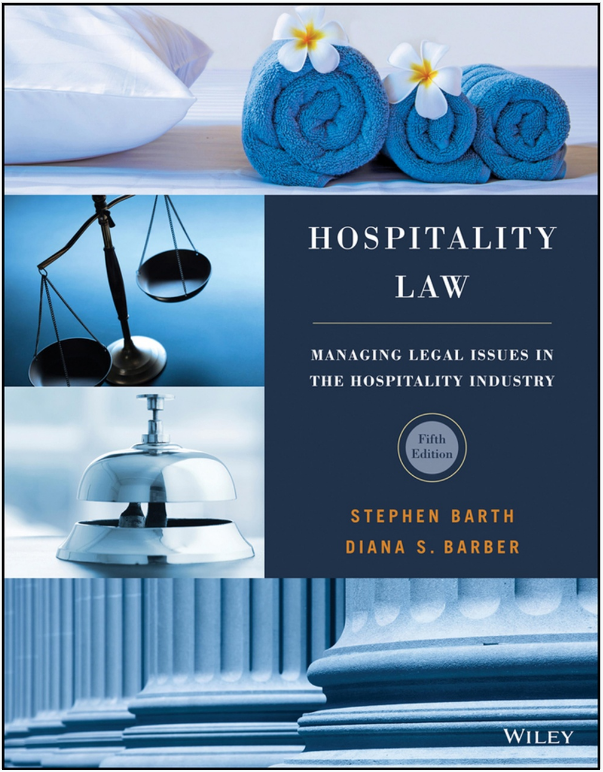What Is Hospitality Law and Why Does It Matter?
In today's fast-paced hospitality industry, understanding the legal framework that governs it is more important than ever. Hospitality law is essentially the set of rules, regulations, and practices that ensure smooth operations in hotels, restaurants, and other establishments. It’s about knowing when to take preventative action, when to call in a lawyer, and how to handle a wide range of legal challenges. Think of it as a roadmap that helps you avoid costly mistakes and protect your reputation. Whether you're a student or a seasoned professional, this knowledge is invaluable.
Breaking Down the Basics of Law in Hospitality
Let’s start with the fundamentals. Law, in general, can be defined as a system of rules that govern behavior. In the context of hospitality, these rules come in various forms—civil law, criminal law, and even international law. For instance, in the Philippines, the legal system draws from multiple sources such as the Constitution, statutes, administrative orders, judicial decisions, customs, and even rulings from foreign tribunals. These sources work together to create a robust framework for managing hospitality-related activities.
Key Legal Aspects in Tourism and Hospitality
Now, let’s dive deeper into the specifics. Hospitality law isn’t just about contracts and agreements; it’s a broad field that touches on labor laws, health and safety regulations, intellectual property rights, and consumer protection. For example, if you’re running a hotel, you need to ensure that your staff is treated fairly under labor laws and that your guests are safe from harm. If you’re a restaurant owner, you might need to protect your unique recipes through intellectual property laws. Each of these aspects plays a crucial role in maintaining a thriving business.
Read also:Ishowspeeds Youtube Journey Earnings Net Worth And More
Defining Hospitality Law: More Than Just Rules
Hospitality law can be described as the legal and social practice concerning the treatment of guests or patrons in any establishment. It’s not just about following rules; it’s about creating a welcoming environment while ensuring everyone’s safety and well-being. Legal liability is a big part of this. Imagine a guest slipping on a wet floor in your hotel. Hospitality laws are designed to protect both the host and the guest in such situations. They provide a clear framework for addressing potential issues before they escalate into costly lawsuits.
Exploring the Scope of Hospitality Law
Hospitality law covers a wide array of topics, from managing employee contracts to ensuring compliance with health and safety regulations. It also involves understanding intellectual property rights, which can be critical if you’re running a chain of restaurants with proprietary recipes. Additionally, consumer protection laws play a significant role in ensuring that guests have a positive experience. By staying informed about these legal requirements, businesses can avoid unnecessary legal battles and focus on growth.
Practical Applications in the Real World
One of the best resources for learning about hospitality law is the textbook "Managing Legal Issues in the Hospitality Industry" by Barth and Barber. This book takes an applied approach to understanding the legal landscape, focusing on compliance and prevention. For example, it discusses how to identify potential legal risks and how to mitigate them. It also includes real-world cases that illustrate how these laws work in practice. This hands-on approach is invaluable for students and professionals alike.
Modern Challenges in Hospitality Law
The hospitality industry is constantly evolving, and so is the law. What you learn today might not be the same a few years from now. That’s why it’s essential for hospitality managers to stay updated on the latest legal developments. They should understand the historical origins of specific laws and recognize that these laws will continue to change. For instance, the rise of digital platforms and online bookings has introduced new legal challenges that didn’t exist a decade ago.
From History to Today: The Evolution of Hospitality
The modern hospitality industry began to take shape in the early 20th century with the emergence of hotels, motels, and restaurants. After World War II, the industry experienced rapid growth due to increased tourism. Today, it’s one of the largest global industries, employing millions of people across various sectors. However, with growth comes complexity. Legal challenges such as data privacy, cybersecurity, and environmental regulations have become more prominent in recent years. Understanding these challenges is key to staying ahead in the game.
Building a Career in Hospitality Management
If you’re considering a career in hospitality management, it’s important to know that salaries can vary widely depending on your educational background, geographic location, experience, and specific job title. While the starting salary might range from $34,569 to $48,950, the potential for growth is significant. The industry offers a wide range of opportunities, from working in luxury resorts to managing global hotel chains. With the right skills and knowledge, you can carve out a successful career in this dynamic field.
Read also:Anahiacute And Televisaunivision The Inside Story On The Quieacuten Es La Maacutescara Scandal
Resources for Learning More
There are numerous resources available for those interested in hospitality law. The Hospitality and Tourism Law Summer Program, for example, provides intensive training for students and professionals. Taught by leading practitioners and industry experts, this program offers a comprehensive curriculum that covers everything from legal basics to advanced topics. Additionally, websites like Converge Blog offer valuable insights into legal, safety, and security challenges faced by the hospitality industry. These resources can help you stay informed and prepared for whatever comes your way.


